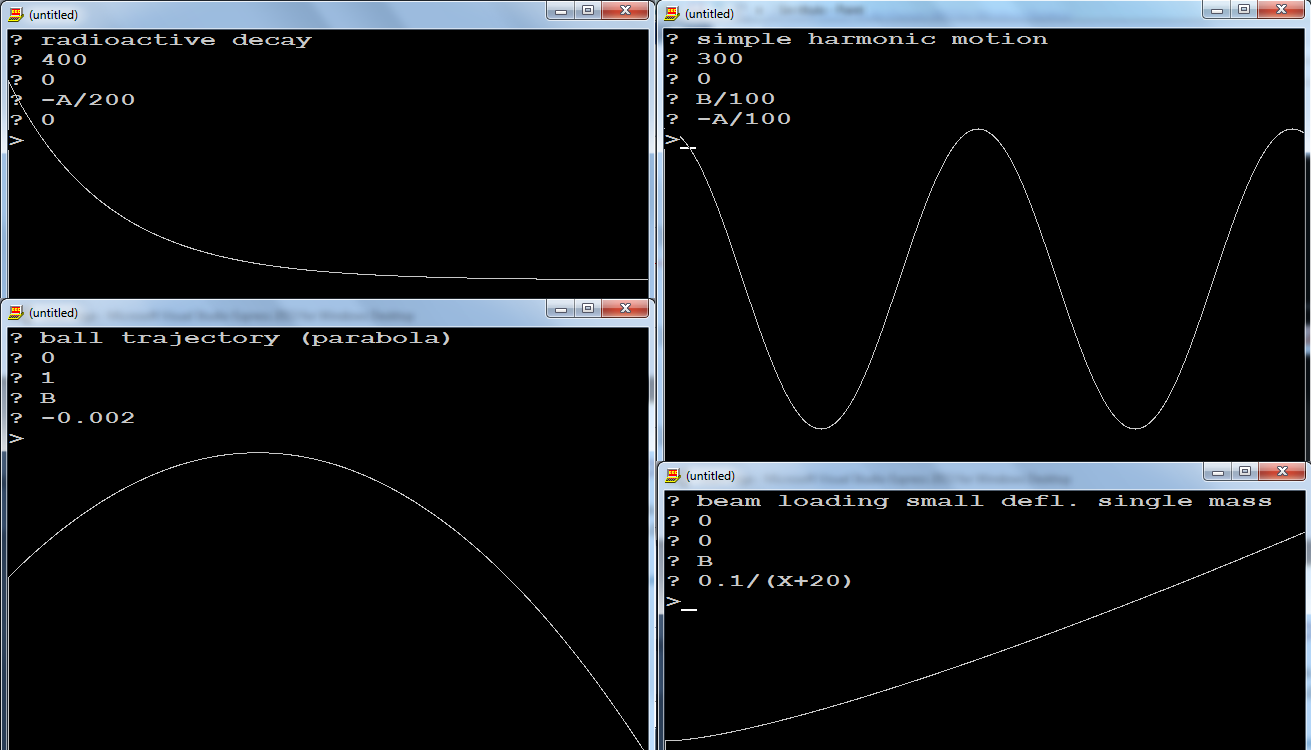In this task, you are allowed make an useful program to do anything you can write within 100 characters. You are allowed to use less characters, but not more.
Rules, just to protect from standard loopholes that are no longer funny:
Your program cannot access the internet, unless it really has to. For example, the program which shows the most upvoted question on this website may use the Internet to check this question. However, it's not allowed to browse the Internet in order to find its real source and run it.
Your program cannot be an interpreter for the language it was written in. However, Brainfuck interpreter in non-Brainfuck language would be fine.
Your program cannot execute external programs that does exactly what your program does. For example, you cannot run
vim, and claim that your program isvimimplementation.Your program cannot be dangerous for the computer it's being ran on and other computers. You aren't allowed to write program like
rmdir /(the example here intentionally doesn't work, don't fix it), and claim it's an useful program to remove all files on the computer.Your program may be as slow as you want, and use as much resources as you want, as long you can prove it does what it meant to do.
You aren't allowed to make language specifically for this task. However, you are allowed to make interpreter for your invented language in some other programming language.


